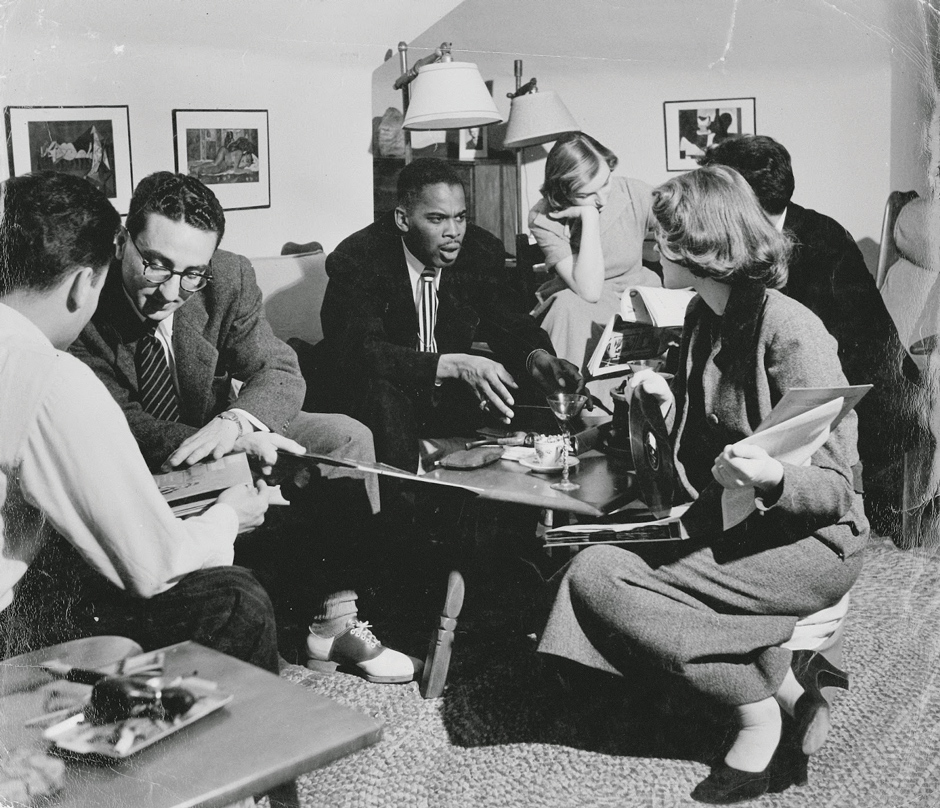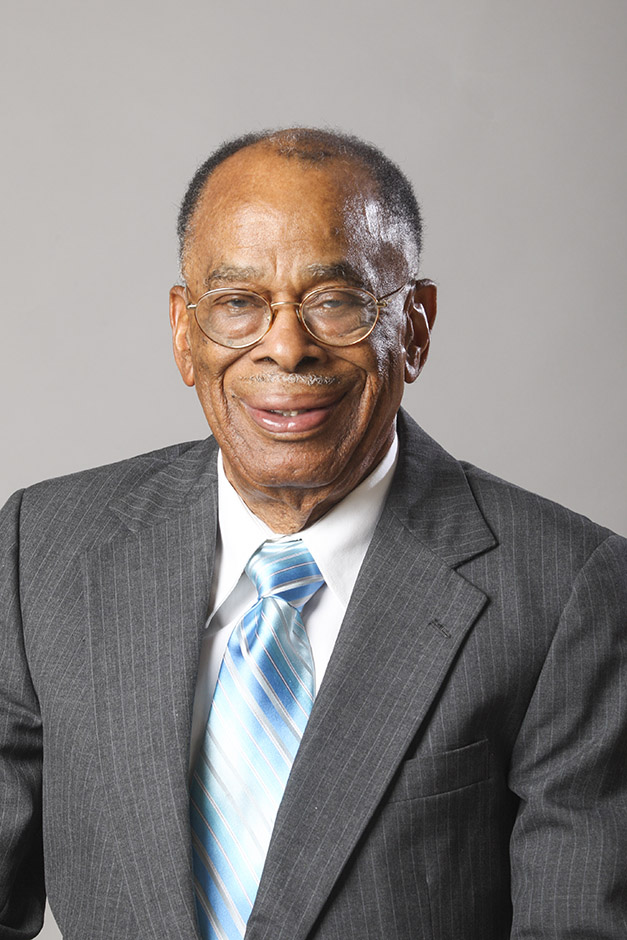
Story by Ryan Gavin
Gus T. Ridgel came to Mizzou in 1950 to pursue his master’s in economics after graduating magna cum laude from Lincoln University with his bachelor’s in business. He had to sue for entrance to the university, which was during the ‘separate but equal’ times before the Brown v. Board decision in 1954. Ridgel was one of nine students admitted in the desegregation of the university.
“Our university is forever indebted to Dr. Ridgel. He was a trailblazer who not only endured discrimination, but persevered through his resilience and steadfast belief that his work would enable future generations of Black students to pursue their education at the university,” former interim UM System President Michael Middleton, President Mun Choi and Provost Latha Ramchand shared in a statement. “Our continuing work to improve inclusion and diversity at the university is profoundly impacted by Dr. Ridgel’s fight for equality, his courage and his humanity.”
Being admitted to MU wasn’t Ridgel’s only challenge. When he arrived at Mizzou, he lived alone in a two-person room because others refused to live with him. And money from the Poplar Bluff native’s GI Bill had run out. While the NAACP stepped in to help, the funds weren’t there for the duration of the two-year program.
Working with his advisor and the department chair, Ridgel found a way to complete the four-semester program in just two semesters. And he did it with honors.

In a 2013 interview with MIZZOU magazine, he called the process a “seven‐day‐a‐week‐job. There wasn’t a lot of time for social events.” And though he spent much time on classes and thesis writing, he also lacked options due to racism.
After the dining halls closed for the evening, there was only one place near campus — a coffee shop near University Bookstore — where a Black student could get something to eat. When he went for lunch at a different nearby restaurant between classes, his white friends were told they could be served, but Ridgel had to leave. They all walked out.
Ridgel said he was aware he was one of the first Black students on campus, but he didn’t focus on it. His objective was just to graduate. “My ‘first’ was purely coincidental,” he said.
“I’m so grateful for the work that Dr. Ridgel has done and the legacy he has left behind,” said Zion Ford, President of the Legion of Black Collegians. “I’m saddened to hear about his passing, and I hope that Mizzou will justly honor him in the near future. It’s important that we not only look at him as an ancestor and pioneer, but also a beacon of change and hope.”
After graduating, Ridgel taught for a year at Fort Valley State University to replenish his bank account before going on to earn a doctorate in economics from the University of Wisconsin and doing postdoctoral work at the University of Chicago, Indiana University, Duke University and other schools.
In 1960, he was hired as head of the Department of Business at Kentucky State University where, other than a few years in the 1980s, he served until he retired in 1996 as vice president for finance and administration. He continued to serve as senior advisor to the president at KSU.
“Thorobreds everywhere will remember and honor the excellence that Dr. Ridgel demonstrated throughout his life and career at Kentucky State with a commitment to our students and the institution,” said KSU President Dr. M. Christopher Brown II. “He genuinely loved all of Kentucky State. We will miss his presence and I will miss his counsel.”
Lasting Legacy
Ridgel’s legacy at Mizzou lives on in several ways.
In 1987, Charles Samson with the Truman School of Public Affairs contacted Ridgel about setting up a fellowship in his name. Today, the Gus T. Ridgel Fellowship is available to underrepresented minority graduate students in any discipline. There are currently 48 students receiving funds, and 500 students have received the fellowship since it was established in 1987.
500 students have received Gus T. Ridgel Fellowships since they were created over 30 years ago.
The fellowship also inspired others to start their own scholarships with his memory in mind. Dr. Charles Menifield, a former Public Affairs professor at Mizzou, benefited from the Gus T. Ridgel Fellowship while pursuing his doctorate and payed it forward by establishing the Charles E. Menifield Fellowship in Public Administration.
In May of 2018, the Gaines/Oldham Black Culture Center started the Gus T. Ridgel Graduation celebration in partnership with the Campus Activities Programming Board in response to student requests. This pre-commencement ceremony acknowledges students who, through unyielding determination, have successfully completed an undergraduate or graduate degree program from MU. It reinforces the importance of scholarship and the sense of community needed for students to thrive and prosper at institutions of higher learning.
“Dr. Ridgel was this pioneer who lived a long and amazing life, opening the door for so many students who have followed after him, including me as I work toward my degree” Velma Buckner, coordinator of the GOBCC, said. “We celebrate his legacy by recognizing the significance of his accomplishments, sharing his story and ensuring equitable processes to help students get their degrees and thrive.”
In the fall of 2018, Ridgel was included in the naming of three spaces on campus honoring Black trailblazers. The Gus T. Ridgel Atrium is inside Lucile Bluford Hall and near George C. Brooks Hall.
“We continue to stand on the shoulders of giants. Dr. Ridgel’s life and work continues to profoundly impact us 70 years later,” said Dr. Maurice Gipson, MU’s Vice Chancellor of Inclusion, Diversity & Equity. “Dr. Ridgel understood the significance and importance of educational attainment not only for himself, but for the thousands who came after him. We will honor him by ensuring that Mizzou is a diverse and inclusive university, and that everyone learns and works in an equitable environment.”
Additional reporting by Erik Potter from 2013 MIZZOU magazine.